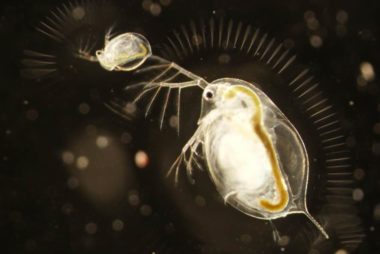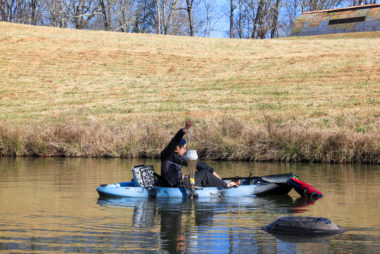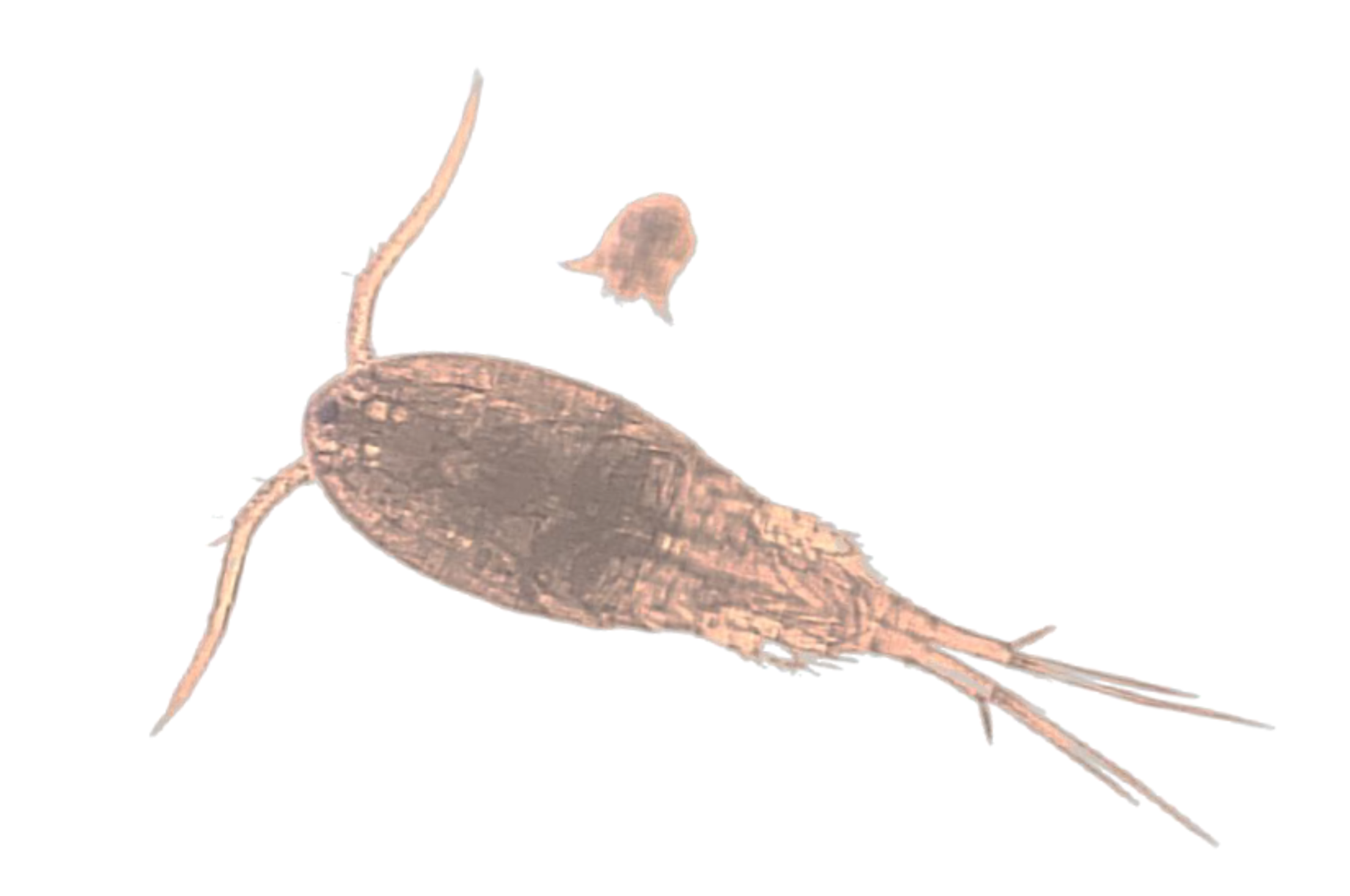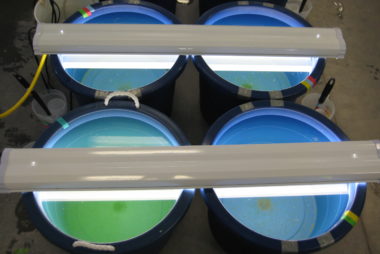
Zooplankton Parasites
Zooplankton are critical members of aquatic food webs. They also provide powerful model systems for eco-evolutionary dynamics and the community ecology of disease. Above, Ceriodaphnia (small) and Daphnia (large) compete and interfere with transmission of each other's parasites.



